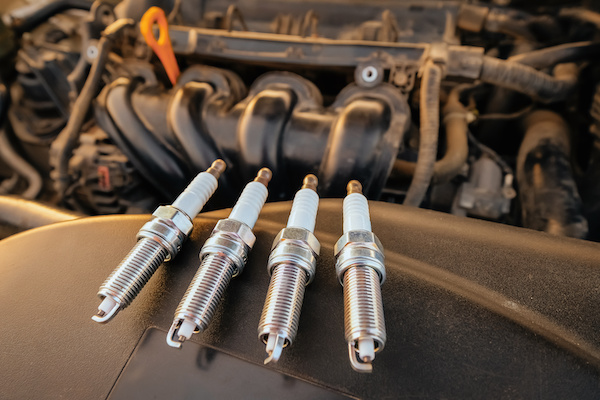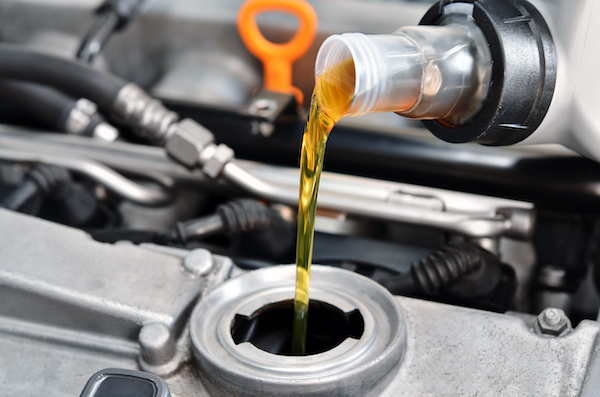Posted on 5/24/2022

Spark plugs are small metal components that are crucial to your engine operation. They're the pieces that ignite the air and fuel mixture when you start your car, and they're also responsible for running your car engine. Undoubtedly, you’ll notice some troubling signs when the spark plugs have worn down. Car Starting Problems If your vehicle is experiencing difficulties starting, you may have faulty spark plugs. As a result, you may experience misfiring or a lit check engine light. Bad Fuel Economy If your vehicle's fuel economy is lower than normal, it can be because of an aging spark plug. A faulty spark plug will make the car work harder and use up more fuel. Difficulty Accelerating Even if you get your car to start, it may fail when you accelerate due to a bad spark plug. This can be dangerous, especially if you have to frequently merge on and off the highway. Engine Overheating If your vehicle’s engine overheats, it could be due to faili ... read more
Posted on 4/26/2022

The sound from a vehicle can help you determine the problem. If your car has a clicking sound, that's a sign of an engine knocking. If you hear grinding or squealing sounds, it could be related to drivetrain components. Different vehicle sounds can indicate trouble. They include engine noise, squealing brakes, a thumping sound, a clanking sound, and others. Some of the common vehicle sounds that indicate trouble include: Engine Noise The sound that comes from the engine can range from a constant hum to a roar. It could be a leak or something more serious like a blown head gasket. Squealing Brakes A high-pitched squealing sound could be due to worn brake pads. Brake pads typically wear out over time, causing some friction on the rotors, which can cause noise and heat build-up. However, it could also be uneven tire wear, inefficient brake lining, or even a clogged oil. Thumping Noise The causes for thumping noise include, improper tire pressure, worn-out shock absorber, inadeq ... read more
Posted on 3/18/2022

As winter shifts into spring, it's time for Burnt Hills drivers to consider getting a few maintenance items. If you want to cruise without worry, proper care is needed. But before you can be approached by the warm breeze again, here is what your car may need: Oil and Filter Change Some people like to opt for a thinner oil for the winter months and a more viscous one for the summer months. Even if you didn't do much driving during the winter, your oil might be going bad. You should check your oil level and condition and head over to the auto repair shop if things don't look up to standards. Change Windshield Wiper Blades The saying goes, "April Showers, Bring May Flowers." April sees the most rain in many parts of the US, and New York is no exception. Getting caught in a thunderstorm with dull or ineffective wiper blades isn't a sight to see. You should replace them every 6 to 12 months for good visibility. Top Off Fluids Your car has various fluids that ... read more
Posted on 2/24/2022

When figuring out how often you should get your oil changes, you can always look in your owner's manual. This book is considered the most trusted resource for what your car precisely needs. However, in brief, you can approximate your oil change intervals by the age of your vehicle and the type of engine it has. Oil Changes for Older Vehicles Typically, automobiles built more than a decade ago with simple engine designs use conventional motor oil. This traditional oil needs to be swapped out around every 3 months or 3,000 miles. Some manufacturers might allow a couple thousand more miles, recommending a 5 month or 5,000-mile interval. What May Necessitate More Frequent Oil Changes? You may require an oil change more frequently if your driving conditions fall under the following: Frequent short trips <5 miles Extreme temperatures or dusty environments Often operating in stop-and-go traffic Towing or hauling heavy loads Oil Changes for Newer Vehicles Many modern vehi ... read more
Posted on 1/31/2022

Driving at night is a dangerous activity, no matter your age or how well you think your vision may be. Fatal accidents have been found to occur more often at night when compared to the day. The reasoning behind the statistic is that drivers have less visibility at night, limiting their reaction time. Although your car lights are essential during the evening, they can bring about glares and put you at risk of an accident. Below are several of our essential tips for night driving: Have Your Eyes Checked Regularly We hate to be the ones to nag you about your health, but annual eye checkups are necessary to ensure you're driving safely. Furthermore, your glare and vision tend to weaken as you age. Therefore, you may need glasses or contacts to see better for the night. Test Your Vehicle Lights Make checking your car lights a part of your driving routine; it's vital to examine your lights due to the sun setting sooner this time of year and an increased likelihood ... read more